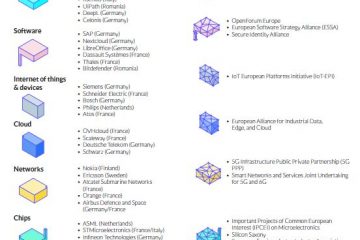Data Models & Business Models
The concept of data models rather than business models is interesting: how are companies creating value from the data they gather? In the new information age, all companies – big or small – need not only to store data from their customers and transactions for operational purposes, they also need to think about how to leverage this data to generate new revenues. Thinking about the different sources of the data for a company and how the different data types will be merged in order to provide to the company the best way to analyse and leverage this data can be done upfront at the same time as the creation of the business model.
In general, it is recommended to only create data models based on business rules and business goals. As such, thinking about a company’s data model at the time of its creation is the best approach to establish good data and digital foundations.
What is a Data Model?
Data modeling refers to the organization and architecture of various databases (customer lists, inventory, transaction history, website pathing, etc.) so that information can be effectively and flawlessly used and accessed.
A strong and through data model can give small companies a competitive edge. It enables them to connect disparate type of information together and make connections between themselves to optimise issues or identify new opportunities faster than their competitors.
Data is the gold of any company: the information one company holds on its customers, their behavior and unique traits is extremely valuable.
If you are in the process of creating your business plan and thinking of how to generate value from data or if you are thinking about building a data model or global data layer from your company, feel free to reach to me and let’s discuss!

